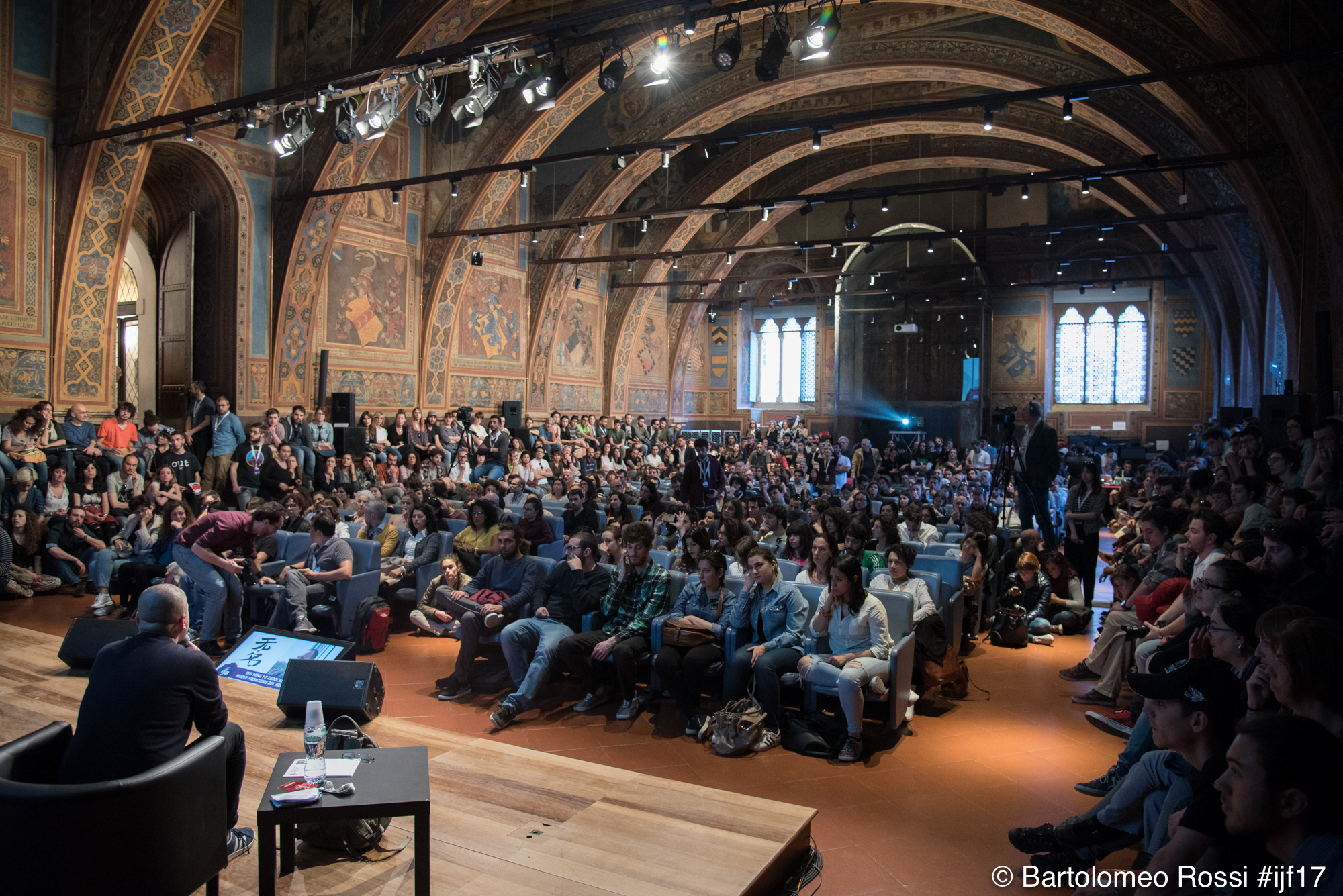
The 2018 festival – the twelfth edition – will be the biggest and best yet, with more than 700 speakers from all over the planet and more than 300 sessions in the programme. All sessions will take place in the stunning setting of the historic town centre of Perugia. Each session will be live-streamed, with the on-demand video available on the festival website immediately afterwards. Simultaneous translation in English-Italian will be provided for about 75 sessions. All festival sessions will be free entry for all attendees, without any need for registration.
About 200 volunteers will take part, involved in activities such as event reviews, speaker interviews, logistics, press office, etc. The volunteers – journalism students, aspiring journalists or journalists at the beginning of their careers – this year come from 21 different countries.
The festival programme is the result of the input of many different individuals, organisations, institutions and media companies. We thank them all for their contribution. The programme attempts to cover all the major issues of current interest in the media and beyond. We hope you find it stimulating.
Topics to be covered in the 2018 programme include sexual harassment, disinformation, climate change, cyber-war and propaganda, artificial intelligence, the alt-right and populism, humanitarian crises, investigative journalism, basic income, trust in the media, migration, fact-checking and debunking, confronting trauma, data journalism, engagement, news start-ups, news literacy, local journalism, diversity and inclusion, public service media, business models, freedom of expression, philanthropy in the media, and many more.
What follows is an overview (with session examples for reference) of the festival programme, divided into session categories. For full details please see the programme online or download our new smartphone app you can consult whenever you need information about ongoing sessions, about how to find a given venue, or about #ijf18 speakers. But to provide a taster we have prepared the following brief overview.
…
#ijf18TALKS
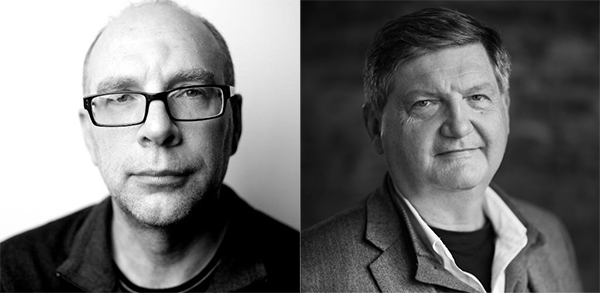
Optimizing journalism for trust. #ijf18talk by Jay Rosen +info►
Moderated by Mathew Ingram. We are still in the early days of the wake-up call for news publishers as they discover that the digital ad business will never be a reliable means of support. Meanwhile, all of journalism is grappling with problems of trust amid extreme polarization and the dominance of a tech industry that seems indifferent to the fate of a free press. Subscription is appealing to more and more publishers as an escape route from this troubled landscape. It would provide a revenue stream to replace ads and a more controlled publishing climate to combat trolls. If you have subscribers (and their credit card numbers) you don’t have to care as much about Facebook’s shifting algorithms. But the cost is high. Digital paywalls prevent journalism from seeking its natural public, and limit the spread of the best work. It’s hard to be a public service when you only speak to the portion of the audience that knows the product and is willing to pay for regular access. This is the problem that the Membership Puzzle Project is trying to solve. (I am the project’s director.) We focus on membership models in news because they do not require a digital paywall. Members regularly tell us they want the work they’re supporting to spread as widely as possible. On the other hand, membership does require a tighter bond with supporters, greater transparency, more interaction, and a conscious decision to optimize a news organization for trust. What that phrase “optimize for trust” means in practice: this talk will be about that.
The biggest secret. My life as a New York Times reporter in the shadow of the war on terror. #ijf18talk by James Risen +info►
Moderated by Stefania Maurizi. The Biggest Secret. My Life as a New York Times Reporter in the Shadow of the War on Terror was published in The Intercept on 3 January 2018. James will talk about his seven-year legal fight against the U.S. government, which threatened to put him in prison unless he revealed his confidential sources. He refused, and ultimately won the battle. to be followed by a discussion on the topic of “How to get secret and confidential documents. From FOIA to leaks, the struggle to acquire factual information.”
…
IN CONVERSATION
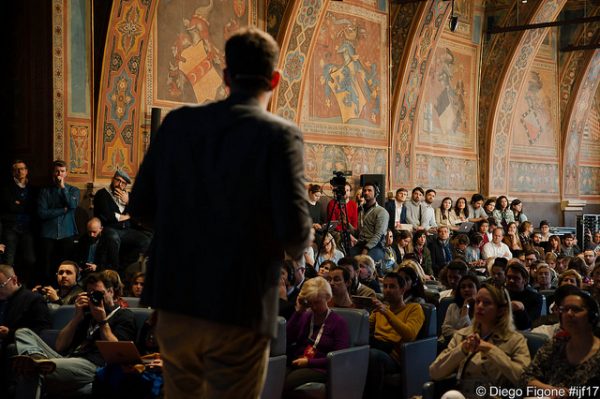
One-to-one interviews or dialogues on a wide range of subjects. There are 34 in the festival programme. Here we provide a selection of just 12.
Nathan Jurgenson (sociologist and social media theorist)
Propaganda and social media +info►
with Fabio Chiusi
Noura Ghazi Safadi (human rights lawyer)
What’s left of the Syrian revolution? +info►
with Francesca Caferri and Donatella Della Ratta
Guy Standing (SOAS University of London)
Basic income. Time for a radical rethink of work, well-being, citizenship +info►
with Alessandro Gilioli
Campbell Brown (head of news partnerships Facebook)
Quality news on Facebook: a conversation with Campbell Brown +info►
with Jeff Jarvis
Madhav Chinnappa (head of strategic relations Google)
Google News Initiative: a conversation about news with Madhav Chinnappa +info►
Mosul Eye: the blogger who revealed to the world the atrocities of ISIS +info►
with Corrado Formigli
Joris Luyendijk (journalist and author)
Taking the red pill: has journalism become part of the problem? +info►
with Sameer Padania
David Neiwert (journalist and author)
Alt-America: the rise of the radical right in the age of Trump +info►
with Leonardo Bianchi
David Stillwell (The Psychometrics Centre Univ. of Cambridge)
Is it possible to psychologically manipulate voters via Facebook? +info►
with Dino Amenduni
David Cohn (senior director Advance Digital)
Where millennial media went wrong +info►
with Federica Cherubini
Misha Glenny (journalist and author)
McMafia: from journalism to book to TV series. Global organised crime in a new light +info►
with Mario Calabresi
Yael Deckelbaum (singer-songwriter and activist) and Meera Eilabouni (Women Wage Peace)
The Israeli-Palestinian conflict: women on the march for peace +info►
with Barbara Serra
Vanessa Redgrave (actress and director)
Sea Sorrow +info►
with Carlo Nero, Carlotta Sami, Barbara Serra
…
PANEL DISCUSSIONS
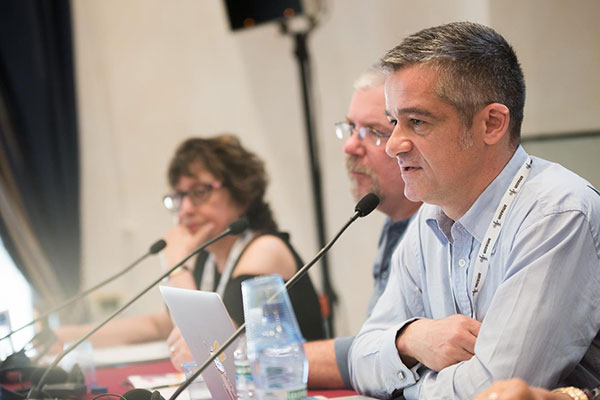
There are 154 panel discussions on a wide range of subjects in the festival programme. The panels have been divided into 7 different categories for ease of reading. We highlight a variety of panels in each category for reference.
Community & Trust
Engaging across distances, differences and divides +info►
Ina Daniel (freelance journalist), Anne Hillman (Alaska Public Media), Regina Lawrence (executive director Agora Journalism Center), Eve Pearlman (co-founder Spaceship Media)
How you can work with your audience members for stronger journalism and site sustainability +info►
Emily Goligoski (research director Membership Puzzle Project), Maaike Goslinga (international editor De Correspondent), Andrea Hart (director community engagement City Bureau), Damian Osta (co-founder and CEO La Diaria), Rebecca Quarls (membership manager The Texas Tribune)
Finding common ground through community-minded journalism +info►
Andrew DeVigal (Agora Journalism Center University of Oregon), Philip Faigle (Zeit Online), Jesikah Maria Ross (media artist), Andrea Wenzel (Temple University)
When journalism goes live and on stage: can live events help build loyalty, trust – and the business? +info►
Louis Dreyfus (CEO Group Le Monde), Renée Kaplan (head of audience engagement Financial Times), Florence Martin-Kessler (founder Live Magazine), Jakob Moll (co-founder and CEO Zetland)
A deeper definition of community: it’s more than just conversation +info►
Jennifer Brandel (co-founder and CEO Hearken), Alison Gow (editor-in-chief digital Trinity Mirror Regionals), Jeff Jarvis (Graduate School of Journalism CUNY), Cristina Kim (The Center for Investigative Reporting), Lea Korsgaard (co-founder and editor-in-chief Zetland)
Building communities through in-real-life engaged journalism +info►
Jennifer Choi (News Integrity Initiative CUNY), Maeve McClenaghan (Bureau of Investigative Journalism), Greg Munno (Newhouse School Syracuse University), Karolis Vysniauskas (Nanook Multimedia)
Tools for trust: a practical, do-something-now guide +info►
Ed Bice (CEO Meedan), Jennifer Brandel (co-founder and CEO Hearken), Mark Little (CEO and co-founder Neva Labs), Rasmus Nielsen (Reuters Institute for the Study of Journalism), Aron Pilhofer (Temple University)
Listening leads to trust. Here’s how to help your newsroom listen better +info►
Jennifer Brandel (co-founder and CEO Hearken), Jennifer Choi (News Integrity Initiative CUNY), Andrew Haeg (founder and CEO GroundSource), Eve Pearlman (co-founder Spaceship Media), Ernst-Jan Pfauth (co-founder and CEO De Correspondent), Tracie Powell (senior fellow Democracy Fund)
Disinformation
Newsrooms of the world unite! Finding a global solution to misinformation +info►
Fergus Bell (founder Dig Deeper Media), Ezra Eeman (head of digital European Broadcasting Union), Chris Elliott (trustee Ethical Journalism Network), Mandy Jenkins (head of news Storyful), Mira Milosevic (director Global Forum for Media Development)
Memes, journalism and visual misinformation +info►
Jennifer 8. Lee (co-founder and CEO Plympton), An Xiao Mina (Meedan), Connie Moon Sehat (editor NewsFrames Global Voices), Farida Vis (director Visual Social Media Lab)
Misinformation whack-a-mole: who is doing what and what might be missing? +info►
Peter Bale (director WikiTribune), Joyce Barnathan (president ICFJ), Jennifer Choi (News Integrity Initiative CUNY), Indira Lakshmanan (The Poynter Institute), Craig Newmark (founder craigslist & Craig Newmark Foundation), Vivian Schiller (member Scott Trust)
Critical perspectives on the disinformation discussion +info►
Alexios Mantzarlis (director International Fact-Checking Network), Martin Moore (King’s College University of London), Rasmus Nielsen (Reuters Institute for the Study of Journalism), Farida Vis (director Visual Social Media Lab)
Misinformation and AI, challenges and opportunities +info►
Ed Bice (CEO Meedan), Lisa-Maria Neudert (Oxford Internet Institute), Martin Robbins (Factmata), Amy Zhang (MIT Computer Science & Artificial Intelligence Lab)
Is the problem of fake news overblown? +info►
Bill Adair (Sanford School of Public Policy Duke Univ.), Phoebe Arnold (Full Fact), Polly Curtis (editor HuffPost UK), Alexios Mantzarlis (director International Fact-Checking Network)
Humanitarian Crises
Reporting the Rohingya crisis +info►
Aela Callan (documentary film-maker), Sam Dubberley (digital verification corps Amnesty International), Tirana Hassan (Amnesty International), Hannah McKay (Reuters)
Empathy engine or poverty porn? The challenges of telling stories from the developing world with 360 video +info►
Marc Ellison (photojournalist), Joe Inwood (BBC World Service), Viktorija Mickute (Contrast VR), Joffrey Monnier (Medecins Sans Frontières)
The emotional toll on journalists covering the refugee crisis +info►
Anthony Feinstein (University of Toronto), Helen Long (Reuters), Hannah Storm (director International News Safety Institute), Will Vassilopoulos (freelance journalist)
Rethinking our reporting of the refugee crisis: how collaborative journalism can improve how we cover migration +info►
Anwar Elsamani (Sudanese journalist in exile), Vivienne Francis (director Refugee Journalism Project), Ziad Ghandour (BBC Arabic), Sally Hayden (freelance journalist)
Reporting from North Yemen under siege: the storytelling of a forgotten war +info►
Nawal Al-Maghafi (BBC News), Laura Silvia Battaglia (freelance journalist), Francesca Caferri (La Repubblica)
The Mediterranean refugee crisis: funding flows and migration routes +info►
Lorenzo Bagnoli (freelance journalist), Daniel Howden (Refugees Deeply), Marina Petrillo (journalist and author), Nancy Porsia (freelance journalist), Giacomo Zandonini (freelance journalist)
Media Under Attack
How can journalism networks help investigations under authoritarian regimes? Case study: Turkey +info►
Stefan Candea (European Investigative Collaborations), Zeynep Sentek (The Black Sea), Craig Shaw (freelance journalist)
Journalists’ polarisation in Poland. Media, politics and history +info►
Krzysztof Dzieciolowski (founder and CEO Vision House), Jacek Karnowski (editor Sieci), Agnieszka Romaszewska-Guzy (director Belsat TV), Matt Subieta (CANAL+), Bartosz Weglarczyk (Onet.pl)
Survival mechanisms for Middle East journalists +info►
Wael Abdel-Fattah (founder Medina), Lina Attalah (co-founder and editor Mada Masr), Lina El Wardani (Ahram Online), Bel Trew (The Times)
Investigating links between governments and organised crime: the murders of Daphne Caruana Galizia and Ján Kuciak +info►
Peter Bardy (editor-in-chief Aktuality.sk), Carlo Bonini (La Repubblica), Maria Gianniti (RAI 1 News), Alan Rusbridger (principal Lady Margaret Hall Univ. of Oxford)
Journalism’s perfect storm? Confronting rising global threats from “f*ke news” to censorship, surveillance, and the killing of journalists with impunity +info►
Guy Berger (director freedom of expression UNESCO), Julie Posetti (journalism fellow University of Wollongong), Courtney Radsch (Committee to Protect Journalists), Maria Ressa (CEO and executive editor Rappler), Jay Rosen (Arthur L. Carter Journalism Institute New York Univ.)
Fighting back: how should journalists respond against attacks? +info►
Kadar Fayyad (civic leadership and training expert Spark), Rachael Jolley (editor Index on Censorship), Ann Marie Lipinski (curator Nieman Foundation for Journalism), John Nery (associate editor Philippine Daily Inquirer)
Isolation, lawsuits and bombs +info►
Cecilia Anesi (co-founder IRPI), Lorenzo Bagnoli (freelance journalist), Claudio Cordova (founder and editor Il Dispaccio), Drew Sullivan (co-founder and editor OCCRP)
Miscellaneous
Fixers and journalists: the changing paradigm +info►
Iona Craig (freelance journalist), Bobby Ghosh (columnist and commentator), Vishal Manve (Agence France Presse), Rajesh Prabhakar (fixer)
Connecting science and journalism though climate change and digital innovation +info►
Jonathan Gray (King’s College London), Alok Jha (public engagement fellow Wellcome Trust), Viktorija Mickute (Contrast VR), John Reilly (co-director MIT Joint Program), Alan Rusbridger (principal Lady Margaret Hall Univ. of Oxford), Elisabetta Tola (founder Formicablu), Rina Tsubaki (European Forest Institute)
Subscriptions vs. memberships. Getting the most from your audience +info►
Gabriel Kahn (Annenberg School for Journalism USC), Ben Nishimoto (director of philanthropy Honolulu Civil Beat), Mary Walter-Brown (founder and CEO News Revenue Hub)
Sparking innovation in local news: funders’ insights +info►
Ludovic Blecher (head of Digital News Initiative Google), Molly de Aguiar (managing director News Integrity Initiative), Nishant Lalwani (director Omidyar Network), Sameer Padania (consultant Macroscope), Nienke Venema (director Stichting Democratie en Media)
How local should global go? +info►
Polly Curtis (editor-in-chief HuffPost UK), Alison Gow (editor-in-chief digital Trinity Mirror Regionals), Blathnaid Healy (director EMEA CNN Digital International), Dmitry Shishkin (digital development editor BBC World Service)
Follow the money: how the crash of 2008 changed journalism worldwide +info►
Bill Emmott (journalist and author), Meera Selva (director journalism fellowship programme RISJ), Dean Starkman (senior editor ICIJ), Cassandra Vinograd (freelance journalist)
The business of news beyond advertising +info►
Janine Gibson (editor-in-chief BuzzFeed UK), Renée Kaplan (head of audience engagement Financial Times), Raju Narisetti (CEO Gizmodo Media Group), Rasmus Nielsen (Reuters Institute for the Study of Journalism)
Structures of media ownership +info►
Yoeri Albrecht (director De Balie), Nishant Lalwani (director Omidyar Network), Stephanie Reuter (director Rudolf Augstein Foundation), Nienke Venema (director Stichting Democratie en Media)
Going digital: a roadmap for organisational transformation +info►
Renée Kaplan (head of audience engagement Financial Times), Lucy Kueng (Google Digital News senior research fellow RISJ), David Levy (director Reuters Institute for the Study of Journalism), Inga Thordar (executive editor CNN Digital International)
Funders confidential. Leading donors open up on their decision processes to reveal who they fund and why +info►
Miguel Castro (senior officer Bill&Melinda Gates Foundation), Molly de Aguiar (managing director News Integrity Initiative), Stephanie Reuter (director Rudolf Augstein Foundation), Adam Thomas (director European Journalism Centre), Nienke Venema (director Stichting Democratie en Media)
Social theory and the news +info►
Chris Anderson (School of Media & Communication Leeds Univ.), Charlie Beckett (director Polis), Regina Lawrence (executive director Agora Journalism Center), Nikki Usher (George Washington University)
Managing digital change +info►
Matt Danzico (founder NBC Left Field), Esra Dogramaci (senior digital editor Deutsche Welle), Mark Little (CEO and co-founder Neva Labs), Inga Thordar (executive editor CNN Digital International), Anne-Marie Tomchak (UK editor Mashable)
Growing non-English audiences around the world: key learnings +info►
Federica Cherubini (Condé Nast International), Scott Lamb (vice president of international BuzzFeed), Isabelle Roughol (international managing editor LinkedIn), Dmitry Shishkin (digital development editor BBC World Service)
Fascism is back. Is journalism part of the problem or of a solution? +info►
Yasmin Alibhai-Brown (International Business Times), Bettina Figl (Wiener Zeitung), Jean-Paul Marthoz (Le Soir), Jovanka Matic (Institute of Social Sciences Belgrade), Milica Pesic (executive director Media Diversity Institute)
Legal leaks: inspiring stories on the art of using access to information (FOI) laws +info►
Alberto Alemanno (Ecole des Hautes Etudes Commerciales Paris), Helen Darbishire (founder and director Access Info Europe), Anuska Delic (Delo), Andrea Menapace (founder and executive director CILD), Christian Mihr (director Reporters Without Borders Germany)
States, companies, algorithms and crowds: the many new faces of web censorship +info►
Claudio Agosti (Good Technology Collective), Lina Attalah (publisher Mada Masr), Simone Basso (fellow Measurement Lab), Renato Gabriele (IT architect), Jillian York (Electronic Frontier Foundation)
Journalism and the future of the internet: help the UN draft a new international standard for a free and open worldwide web +info►
Guy Berger (director freedom of expression UNESCO), Fatemah Farag (founder & director Welad Elbalad Media Services), Raju Narisetti (CEO Gizmodo Media Group), Julie Posetti (journalism fellow University of Wollongong), Maria Ressa (CEO and executive editor Rappler), Inga Thordar (executive editor CNN Digital International)
Funking up Germany’s national broadcasters +info►
Isabel Hummel (editor Funk), Kyo Mali Jung (editor Funk), Julia Rehkopf (Y-Kollektiv funk), Eva Schulz (presenter Deutschland3000)
Activists of the world, unite! +info►
Vittorio Alberti (philosopher and author), Massimiliano Coccia (Radio Radicale), Penelope Faulkner (vice pres. Action for Democracy in Vietnam), André Gattolin (senator En Marche!), Abdirahman Mahdi (co-founder Ogaden National Liberation Front), Sam Rainsy (Cambodian politician in exile), Mona Silawi (Unrepresented Nations and Peoples Organization), Saumura Tioulong (Cambodia National Rescue Party)
Cross borders! How to put collaborative journalism into practice +info►
Brigitte Alfter (managing editor Journalismfund.eu), Tabea Grzeszyk (co-founder and CEO Hostwriter.org), Annett Heft (Institute for Media and Communication Studies), Stefanie Murray (director Center for Cooperative Media)
Disappearing act: what the decline of local beat journalists means for our democracies +info►
John Crowley (digital editor and journalist), Steffi Dobmeier (managing editor Funke Zentralredaktion Online), Tom Felle (Department of Journalism City University), Alison Gow (editor-in-chief digital Trinity Mirror Regionals), Isabelle Roughol (international managing editor LinkedIn)
Elements shaping the Middle East media landscape +info►
Fares Akkad (head of media partnerships MEAT Facebook), Jessica Dheere (co-founder and director Social Media Exchange), Fatemah Farag (founder & director Welad Elbalad Media Services), An Xiao Mina (Meedan), Anette Novak (CEO Rise Interactive)
Weaken from within: Russia’s information age art of war +info►
Fabio Chiusi (journalist and author), Hannes Grassegger (journalist and economist), Andrei Soldatov (editor Agentura.ru), Galina Timchenko (executive editor Meduza)
Does journalism, and do journalists, still need WikiLeaks? +info►
Joseph Cox (cyber-security reporter Motherboard), Lorenzo Franceschi-Bicchierai (Motherboard), Carola Frediani (La Stampa), Stefania Maurizi (La Repubblica)
Journalists, meet your new overlords: when nerds run the show +info►
Gregor Aisch (CTO Datawrapper), Janine Gibson (editor-in-chief BuzzFeed UK), Emily Goligoski (research director Membership Puzzle Project), Aron Pilhofer (Temple University)
Tech & Social Media
Help define the moral imperatives that should be guiding media and platforms’ decisions +info►
Jeff Jarvis (CUNY), Indira Lakshmanan (The Poynter Institute), Raju Narisetti (CEO Gizmodo Media Group), Maria Ressa (CEO and editor Rappler)
Maybe Facebook doesn’t love us after all. So, what now? +info►
Mario Calabresi (editor La Repubblica), Raju Narisetti (CEO Gizmodo Media Group), Aron Pilhofer (Temple University), Vivian Schiller (member Scott Trust)
Moral panic over technology: is it all that bad? +info►
Madhav Chinnappa (director strategic relations Google), Jeff Jarvis (CUNY), Tanit Koch (ex editor Bild), Alan Rusbridger (principal Lady Margaret Hall University of Oxford), Jillian York (Electronic Frontier Foundation)
Automating verification? The role of technology in the verification process: status, activities and challenges +info►
Phoebe Arnold (Full Fact), Sam Dubberley (digital verification corps Amnesty International), Tom Felle (City University London), Mandy Jenkins (Storyful), Jochen Spangenberg (Deutsche Welle)
Can journalism hold platforms accountable? +info►
Julia Angwin (ProPublica), Mathew Ingram (chief digital writer Columbia Journalism Review), Taylor Owen (University of British Columbia), Jay Rosen (Arthur L. Carter Journalism Institute New York Univ.)
Automation, augmentation, and AI in the newsroom +info►
Garrett Goodman (VP business development EMEA Wochit), Andrea Iannuzzi (managing editor Rep: project), Francesco Marconi (Associated Press), Anne-Marie Tomchak (editor Mashable UK)
Robot journalism in the Global South: beyond the hype +info►
Justin Arenstein (director Code For Africa), Catherine Gicheru (director Code for Kenya), Jacopo Ottaviani (ICFJ Knight Fellow Code for Africa), Chris Roper (ICFJ Knight Fellow), Nasr ul Hadi (Knight Fellow International Center for Journalists)
#UsToo
Foreign correspondents: how women have changed the role +info►
Alison Baskerville (documentary photographer), Nima Elbagir (senior international correspondent CNN), Anna Holligan (foreign correspondent BBC), Jina Moore (East Africa bureau chief The New York Times), Douce Namwezi N’Ibamba (director AFEM), Cassandra Vinograd (freelance journalist)
Journalism to empower women in conflict zones +info►
Luigi Contu (editor-in-chief ANSA), Zina Hassan (Yazidi IDP), Shayda Hessami (human rights activist), Andrea Iacomini (spokesman UNICEF Italy)
#UsToo: sexual harassment, gendered threats and press freedom +info►
Susan McKay (journalist and author), Jina Moore (East Africa bureau chief The New York Times), Alexis Okeowo (staff writer The New Yorker), Bruce Shapiro (director Dart Center for Journalism & Trauma)
Why gender and colonialism matter in journalism startups +info►
Candis Callison (University of British Columbia), Anita Li (director of communities Discourse Media), Minelle Mahtani (University of Toronto), Nikki Usher (George Washington University), Mary Lynn Young (University of British Columbia)
Sexual violence: a silencing tool +info►
Lina Attalah (publisher Mada Masr), Anna Lekas Miller (freelance journalist), Rosa Meneses (El Mundo), Tracie Powell (senior fellow Democracy Fund), Courtney Radsch (Committee to Protect Journalists)
Sexual harassment in the newsroom +info►
Jasmine Andersson (PinkNews), Megha Mohan (BBC News), Emily Reynolds (journalist and author), Louise Ridley (freelance journalist), Hannah Storm (director International News Safety Institute)
Data Journalism and Photojournalism
In the programme there are also 13 sessions specific to the subjects of Data Journalism and Photojournalism. We highlight 3 for reference.
International data journalism unconference +info►
Marianne Bouchart (manager Data Journalism Awards), Duncan Clark (co-founder Kiln), Eva Constantaras (data journalist), Pinar Dag (Kadir Has University), Syed Nazakat (founder and editor DataLEADS)
Masterclass in data journalism tools +info►
Simon Rogers (data editor News Lab Google)
A decisive moment: reimagining photojournalism for a digital future +info►
Jeff Israely (co-founder and editor Worldcrunch), Francesca Sears (director special projects Magnum Photos), Francesco Zizola (co-founder Noor)
…
WORKSHOPS

A set of 23 workshops to choose from, including 4 offered by Facebook and 3 by Google.
…
PRESENTATIONS
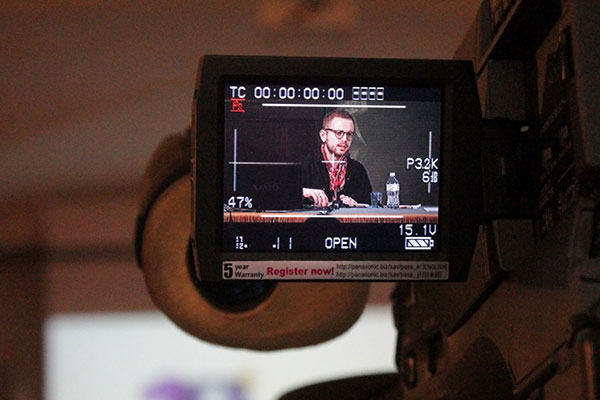
There are 25 presentations in the festival programme. We highlight 11 for reference.
14 tips to build mobile storytelling communities +info►
with Yusuf Omar (co-founder Hashtag Our Stories)
Group therapy with De Correspondent: our top 10 f*ck-ups with members, and other awkward moments (including yours) +info►
with Jessica Best (engagement editor De Correspondent), Maaike Goslinga (international editor De Correspondent)
WikiTribune: the news is broken and we can fix it +info►
with Dan Gillmor (School of Journalism Arizona State University), Orit Kopel (co-founder WikiTribune)
Doing less better… or 5 ways of embracing digital in legacy media +info►
with Guido Baumhauer (managing director Deutsche Welle)
Lightning talks: innovation by public service media news labs +info►
8 fellows of the Reuters Institute for the Study of Journalism, from Botswana to Finland to Hong Kong, will each give a brief outline of their current research
How to run a global investigation into Facebook with machine learning +info►
with Cristina Elmer (head of data journalism Spiegel Online), Jeff Larson (reporter ProPublica)
How to fix a World Cup match: the new wave of globalized corruption that is endangering sport everywhere +info►
with Declan Hill (journalist and author)
Holding algorithms accountable +info►
with Julia Angwin (senior reporter ProPublica), Fabio Chiusi (journalist and author)
Fake news: you’re making it worse +info►
with Shane Greenup (founder rbutr), Anna Masera (journalist La Stampa)
Voice news: the consumption of news in the age of AI and vocal assistants +info►
with Max Amordeluso (lead evangelist Alexa Amazon Europe)
Automated journalism in real life +info►
with Bill Adair (Sanford School of Public Policy Duke Univ.)


